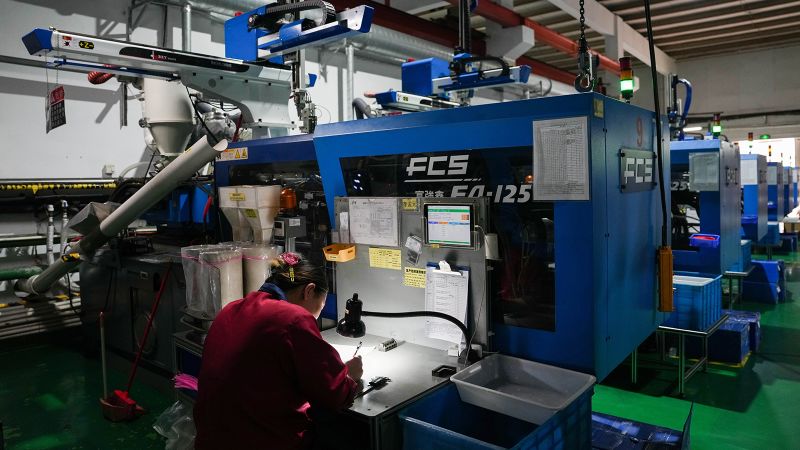The annual Global Sources trade fair in Hong Kong has commenced with a vibrant display of innovation and enthusiasm. This year’s event was marked by an impressive showcase of advanced robotics, eye-catching products, and an eager audience filling the convention center to capacity. Despite the initial excitement, the atmosphere has been tinged with apprehension due to ongoing economic tensions stemming from the US-China trade war, which looms large over this traditionally optimistic trade exhibition.
The ongoing trade conflict has created a palpable sense of unease among exhibitors, particularly for those who are predominantly Chinese manufacturers. US President Donald Trump has recently escalated these tensions by imposing staggering tariffs on Chinese imports that now reach as high as 145%. In retaliation, China has introduced its own steep tariffs, with a broad 125% levy on American goods. Many exhibitors at the Global Sources show have voiced concerns that this escalating brinkmanship between the world’s two largest economies could have dire consequences for the overall global economy.
Liu Tongyong, the sales manager at Gaoxd Precision Industry, a company nestled in Dongguan—the heart of China’s manufacturing sector—represents one of many businesses grappling with the implications of these tariffs. The company specializes in producing keyboards and computer mice, both of which have benefited from robust US-China trade relationships in the past. However, Liu noted that the intensifying trade war is severely impacting his company’s sales, which have dipped by approximately 20% since the beginning of the year. This downturn can be attributed to the uncertain economic climate precipitated by the tariffs and the resulting hesitation among buyers.
The uncertainty has pushed many companies, including Gaoxd, into a “wait-and-see” mode, where inventory levels remain high, and new orders are postponed. With approximately 30% of Gaoxd’s sales coming from the US, the pressure to cut costs is mounting. However, Liu points out the steep limits to cost reductions, asserting that Chinese manufacturing has already optimized efficiencies to the maximum. Furthermore, shifting production to other locales is fraught with difficulties due to an absence of complementary supply chains overseas, which would further inflate production costs.
As the Hong Kong trade fair continues, Liu and others in his position remain hopeful about weathering the storm of uncertainty. There’s an optimistic gaze toward potential reforms that might stabilize the current situation, though the horizon remains unclear. Liu emphasized that everyone is anxious to see if any signs of resolution may emerge.
The political developments around the tariffs are also noteworthy. Recently, President Trump has expressed an eagerness to engage in discussions with Chinese President Xi Jinping. Meanwhile, Beijing has maintained a defiant response, vowing to visit retaliatory measures against what they perceive as unilateral bullying from the United States. The timing and nature of any potential talks remain uncertain, contributing to further anxiety among businesses reliant on steady trade.
Similarly, Sky Wing Communication Electronics, another exhibitor from Dongguan specializing in acoustic products, echoed the sentiments of apprehension. Their business manager, Frank Zhang, acknowledged that companies have no choice but to navigate through the complexities created by government policies. With American customers contributing about 30% of their sales, Zhang reported their clients have already begun discussions about price reductions and pausing orders. Moreover, the company’s plans for expansion into Cambodia are now on hold due to the unpredictable nature of US tariffs, which were recently postponed by Trump but initially imposed rates as high as 49%.
To mitigate the adverse impacts of tariffs, businesses like Sky Wing are exploring markets in the Middle East to diversify their clientele beyond the US. However, Zhang concedes that the most beneficial outcome for both his company and its American partners would be an easing of the tariffs.
Finally, the stark realities of the tariff situation are not confined to individual companies. As reflected in the words of Bill King, president of Atron Electro Industries—a Canadian firm relying on Chinese manufacturing—businesses around the globe must prepare for significant adjustments. The ramifications of the trade war extend beyond immediate financial implications, driving a need for strategic accommodations worldwide as globalization meets its challenges. The future under these trading restrictions remains unclear, highlighting the complexities of contemporary international trade dynamics.



